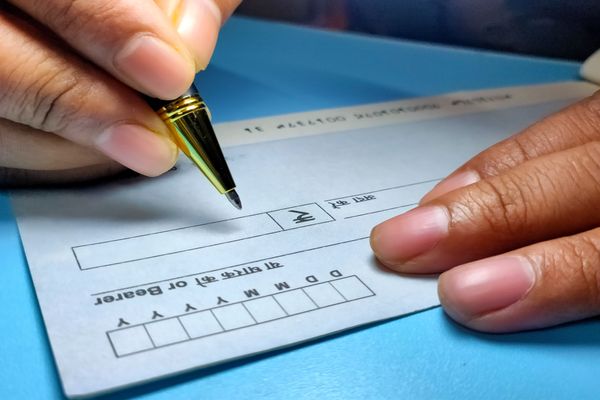What is the need to withdraw money using business checks when multiple cashless options are available? The answer to it is pretty simple. Checks have always been the bank’s prime instrument to transact any amount of money. This makes it quite readily available, and people also hold checks as liquid as cash. The process for self-withdrawal is no different from that of writing a check to another payee.
Understanding Self-Withdrawal Checks
Self Withdrawal checks are just like regular checks that one can utilize to withdraw money from their bank account. A business requires various operational expenses that need to be paid for in cash. The need for hard cash may drive you to withdraw money from your bank account. Thus, if you mention “self” under the payee name, you are going to encash the amount specified. It will be directly deducted from your bank account.
Therefore, it is essential to make provisions accordingly. The self-withdrawal check cannot usually be endorsed. If your bank allows for self-withdrawal checks, then you must be careful with the details that you fill in. You can proceed with the steps involved in writing such a check now that you know about them.
What Are The Steps Involved?
Getting A Checkbook
Before you write a check to withdraw money, you need to have a checkbook. Visit or contact your nearest bank branch so that they can assist you in getting a checkbook. Once you have the checkbook of your own bank, you can issue business checks quickly. There are certain forms that you might be required to fill out in order to receive the checkbook. Usually, it takes a week to get a checkbook. However, it may take you less or more time, depending on the processing speed of your bank.
Writing The Details
It is essential to fill in the details on the business checks correctly. If there are any errors in the details, the check may bounce or be rejected at the cashier’s desk. Make sure that you fill in the facts accurately. Checks that are of commercial origin tend to have larger amounts on them, and a smaller amount to be cashed for yourself may not be a big deal to the bank. It is still the procedure of the bank to follow protocols, and any mistakes will cause the instrument to fail.
Sign The Check
Signatures are identifiers on the check. Having the correct signature for your business checks is essential. It helps the banker or cashier to ensure that the check is valid. If you already do not have a good enough signature, you may wish to practice some styles of signatures for your documents. However, if you have a signature already, you should simply sign the check you have filled in.
Finalizing
Some banks may require you to strike the check with your signature or simply mention the account payee on the reverse side of the business checks. This enables the bank to know what kind of check you are encashing.
